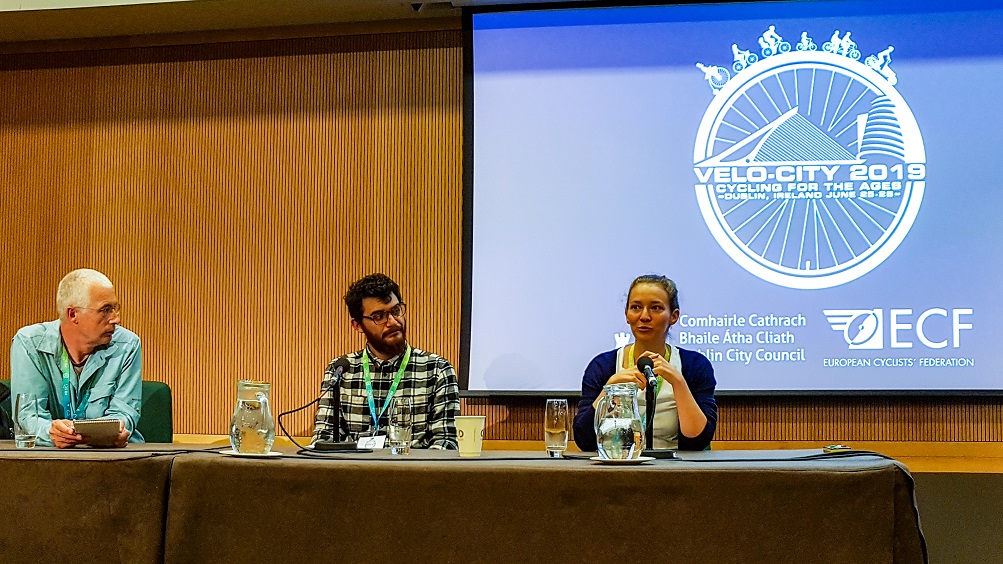
Bringing the latest research to decision-makers, planners and advocates: The academic sessions at Velo-city Dublin
After the successful experience of last year’s Velo-city conference, ECF and its global network Scientists for Cycling decided to continue integrating a research track into the conference programme also at this year’s edition in Dublin. The seven academic sessions featured the latest results of research on cycling from all around the world, and were closely aligned to the themes of the general conference programme.
-
The session “Cycling at all Ages” looked at how cycling become an activity that is enjoyed by people at all stages of life. Presenting examples from Chile and Austria, it featured research on cycling promotion especially for children, showcasing how parents can be involved in intergenerational bike-alongs and how children can be empowered as planners of routes to school, developing their critical thinking and making them active citizens.
-
In “Global Transport Justice”, social justice and equity aspects were addressed. One contribution looked at transport poverty in the Dutch context and showed how cycling can be a solution, providing affordable transport options and accessibility. The other presentation featured the European research project “MoTiV”, which uses GPS tracking and crowdsourced data to redefine the value of travel time, contributing to more just transport and mobility models that do not focus only on time gains for motorised transport.
-
The session “Cycling in the Mobility System: Shifting Norms” featured research from Ireland and the United Kingdom on how norms influence the mobility system. The examples presented delved into the perception of cycling, public space, and road safety, showing for example how cyclists in Dublin perceive their entitlement to road space, how different road users behave at junctions, and how hidden assumptions influence cycling advocacy campaigns and their success.
-
The quickly advancing research on monitoring and evaluating the impact of cycling measures was the topic of the session “Measuring impact”. The session showcased new impact evaluation methodologies both for everyday mobility and cycle tourism, presenting concrete local case studies and observatories that combine different sources of data like GPS tracking, counters, or surveys.
-
Cycling is more than just the physical activity of riding. The session “Subjective Barriers and Enablers of Cycling” considered ways in which cycling is experienced as more than a technical exercise, but involves our whole person and our senses of who we are. These findings on the experience of cycling were then brought in relation with data on cycling practice, in one case for the city of Lisbon and in the other for Ireland, with a specific focus on differences between genders.
-
How is cycling perceived in society and presented in the media? How does this translate into policies and voting behaviour? The session “Images of cycling” featured research contributions on these questions, looking at the representation of cyclists in Irish media and related perceptions in the population, as well as the data behind a referendum on integrating cycling into the Swiss constitution. Another contribution looked at how cycling promotion campaigns can be better fitted to different target groups.
-
Finally, the contributions in the session “Encouraging cycling, improving mobility” looked at different ways of boosting everyday cycling in cities with low mode share like Lisbon and integrating cycling and public transport, using the example of Taipei.
Regions:
Network/Project Involved:
Topics:
Contact the author
Recent news!
Upcoming events
Contact Us
Avenue des Arts, 7-8
Postal address: Rue de la Charité, 22
1210 Brussels, Belgium









